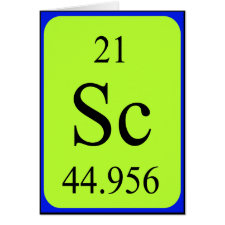
Authors: Gao F, Hu YX, Chen D, Li-Chan ECY, Grant E, Lu XN
Article Title: Determination of Sudan I in paprika powder by molecularly imprinted polymers-thin layer chromatography-surface enhanced Raman spectroscopic biosensor.
Publication date: 2015
Journal: Talanta
Volume: 143
Page numbers: 344-352.
DOI: 10.1016/j.talanta.2015.05.003
Alternative URL: http://www.sciencedirect.com/science/article/pii/S0039914015003537
Abstract: Sudan I is a carcinogenic and mutagenic azo-compound that has been utilized as a common adulterant in spice and spice blends to impart a desirable red color to foods. A novel biosensor combining molecularly imprinted polymers (MIPs), thin layer chromatography (TLC) and surface enhanced Raman spectroscopy (SERS) could determine Sudan I levels in paprika powder to 1 ppm (or 2 ng/spot). Sudan I spiked paprika extracts (spiking levels: 0, 1, 5, 10, 40, 70 and 100 ppm) were prepared. Sudan I imprinted polymers were synthesized by employing the interaction between Sudan I (template) and methacrylic acid (functional monomer), followed by washing to remove Sudan I leaving the Sudan I-binding sites exposed. MIPs were used as a stationary phase for TLC and could selectively retain Sudan I at the original spot with little interference. A gold colloid SERS substrate could enhance Raman intensity for Sudan I in this MIP-TLC system. Principal component analysis plot and partial least squares regression (R2=0.978) models were constructed and a linear regression model (R2=0.983) correlated spiking levels (5, 10, 40, 70 and 100 ppm) with the peak intensities (721 cm-1) of Sudan I SERS spectra. Both separation (30-40 s) and detection (1 s or 0.1 s) were extremely fast by using both commercial bench-top and custom made portable Raman spectrometers. This biosensor can be applied as a rapid, low-cost and reliable tool for screening Sudan I adulteration in foods
Template and target information: sudan I
Author keywords: molecular imprinting, Raman spectroscopy, separation, food safety, multivariate analysis



Join the Society for Molecular Imprinting

New items RSS feed
Sign-up for e-mail updates:
Choose between receiving an occasional newsletter or more frequent e-mail alerts.
Click here to go to the sign-up page.
Is your name elemental or peptidic? Enter your name and find out by clicking either of the buttons below!
Other products you may like:
 MIPdatabase
MIPdatabase









